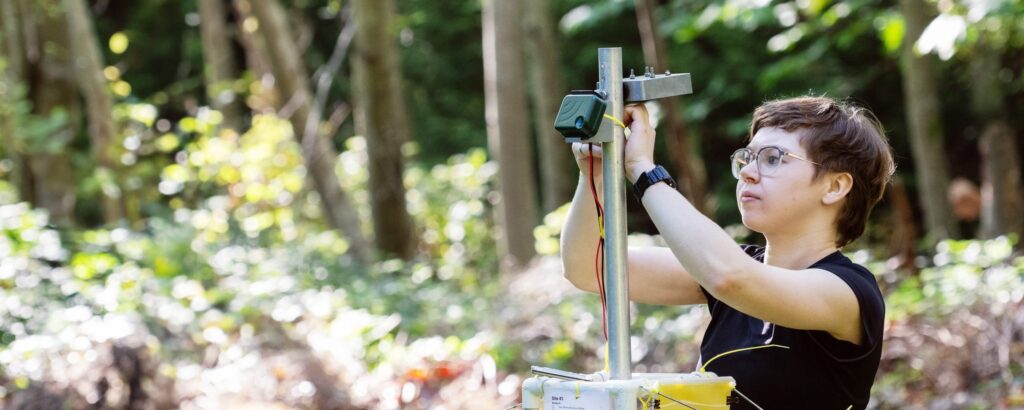
Researchers at UBC Farm may not conduct their research under the cover of darkness, but they are certainly getting a sense of what insects are up to during the night. These days, however, darkness is a relative term with the proliferation of human-made artificial light at night (ALAN). Master’s student Daphne Chevalier is seeking to better understand its impact.
“Artificial light at night is a huge threat,” says Chevalier, a student in the LFS Plant-Insect Ecology & Evolution Lab working under co-supervisors Drs. Juli Carrillo and Quentin Geissmann. “The dark sky is something that’s so incredibly valuable and those of us who live in cities tend to forget about that because we’re so used to having a sky that’s light-polluted. But light is super important to insects’ foraging, navigation, camouflage, and reproduction, and they are often very sensitive to changes in colour and intensity.”
Artificial light is not only a problem in cities. Rural areas are also seeing increases in street lighting and from less expected sources: greenhouses in farm fields become beacons of light pollution in otherwise dark and biodiversity-rich areas.
Chevalier’s project piggy-backs off the Sticky Pi project, which uses artificial intelligence to photograph and identify insects in real time. She has added lights, light sensors, pitfall traps, and bat recorders to 12 Sticky Pi instruments that are placed far apart around the UBC Farm. Chevalier herself designed the light systems, which she’s calling ALANizers. The sensors collect data on light intensity and colour, while the Sticky Pis, pitfall traps, and bat recorders collect information on insect and bat activity.
“It’s so important to understand how the light that we’re introducing to the environment is impacting all of these different creatures,” adds Chevalier. “They really are the foundation of ecosystems and of our food system.”
Please visit the Faculty of Land and Food Systems’ ReachOut to read the full story.
Through Strategy 8: Student Research, UBC is expanding opportunities for undergraduates to gain first-hand experience in research and is strengthening research experiences for graduate students and postdoctoral fellows.